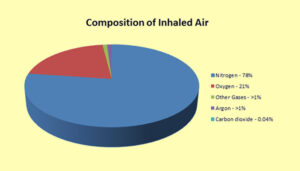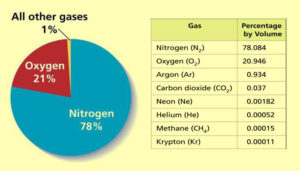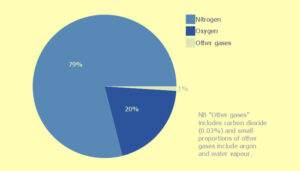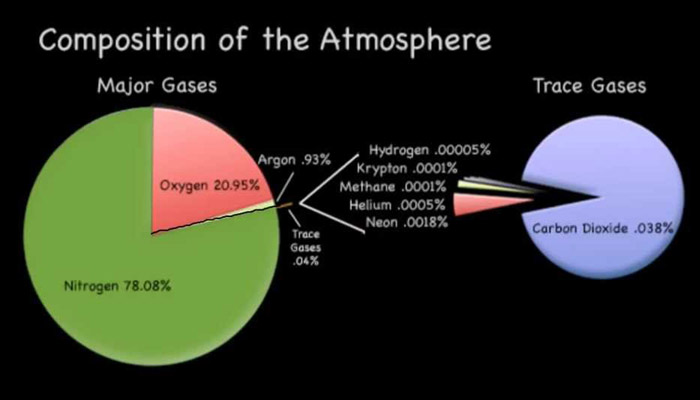In this article, we will uncover the methane percentage in atmosphere of the Earth and explore the various aspects related to its presence. Methane, a potent greenhouse gas, plays a crucial role in the Earth’s atmosphere. Its presence contributes to the greenhouse effect, affecting our planet’s climate.
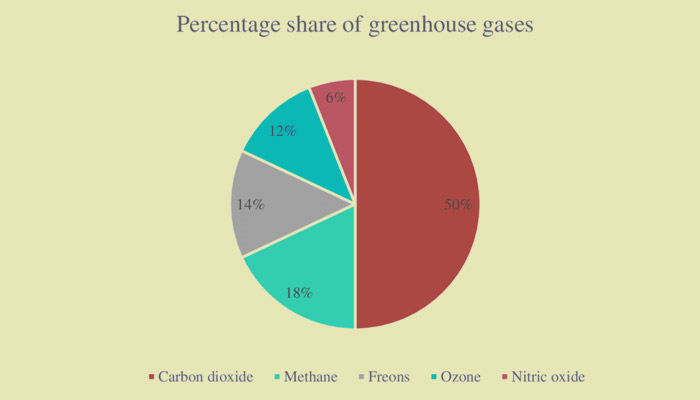
Table of Contents
0.000187 is the Methane Percentage in Atmosphere
Understanding the sources of methane is vital to comprehend its prevalence in the atmosphere. Natural sources, such as wetlands and termites, contribute significantly. However, human activities, including agriculture and fossil fuel extraction, also release substantial amounts of methane into the air.
Methane Levels Over Time
Tracking the historical trends of methane levels reveals interesting patterns. While natural variability exists, recent years have shown a concerning increase in methane concentrations. Scientific instruments and global monitoring efforts play a crucial role in collecting accurate data on atmospheric methane.
Various factors influence methane levels, including climate change and human activities. Understanding these influences is essential to develop effective strategies for reducing methane emissions.
Measuring Methane in the Atmosphere
Accurately measuring methane requires sophisticated scientific instruments. From ground-based stations to satellite observations, these tools help scientists monitor methane levels globally. Ongoing advancements in technology contribute to more precise measurements.
The scientific community continually conducts research on methane levels and its implications. Noteworthy studies provide valuable insights into the current state of atmospheric methane and potential future scenarios.
Beyond environmental concerns, high methane levels can impact air quality and pose health risks to humans. Understanding these effects underscores the urgency of addressing methane emissions. Raising awareness about methane’s environmental impact is crucial. Educational initiatives can empower individuals and communities to contribute to the reduction of methane emissions.
The Role of Methane in the Greenhouse Effect
Methane’s impact on the greenhouse effect is significant. Despite its lower concentration compared to carbon dioxide, methane has a higher global warming potential. Exploring its role in climate change is crucial for addressing environmental concerns.
Global Initiatives to Reduce Methane Emissions
International collaborations and policy measures aim to curb methane emissions. The importance of a collective effort to address this environmental challenge cannot be overstated.
Efforts to mitigate methane emissions encompass both natural solutions and human-centric approaches. From restoring wetlands to implementing more sustainable agricultural practices, there are multiple avenues for reducing methane levels.
Conclusion
Predicting future methane levels involves considering various factors. Scientists make projections based on current trends, but the effectiveness of mitigation strategies will ultimately shape the future outlook for methane in the atmosphere.
In conclusion, the percentage of methane in the Earth’s atmosphere is a critical aspect of climate change. Understanding its sources, measuring techniques, and the impact on the greenhouse effect are essential for implementing effective mitigation strategies.
FAQ – Frequently Asked Questions
Why is methane considered a greenhouse gas?
Methane has a high global warming potential, contributing to the greenhouse effect.
How do human activities contribute to methane emissions?
Agriculture, fossil fuel extraction, and industrial processes release significant amounts of methane.
What are the health risks associated with high methane levels?
High methane levels can affect air quality and pose health risks, including respiratory issues.
Are there natural solutions to reduce methane emissions?
Yes, restoring wetlands and adopting sustainable agricultural practices are natural mitigation strategies.
How can individuals contribute to reducing methane emissions?
Supporting sustainable practices, advocating for policy changes, and raising awareness can empower individuals in the fight against methane emissions.
